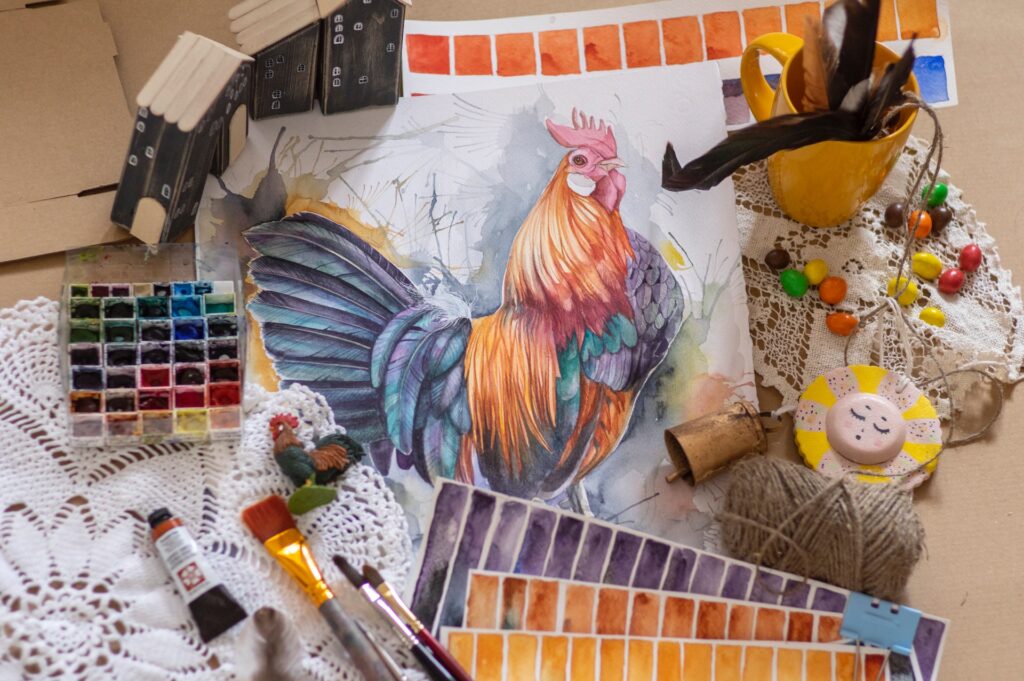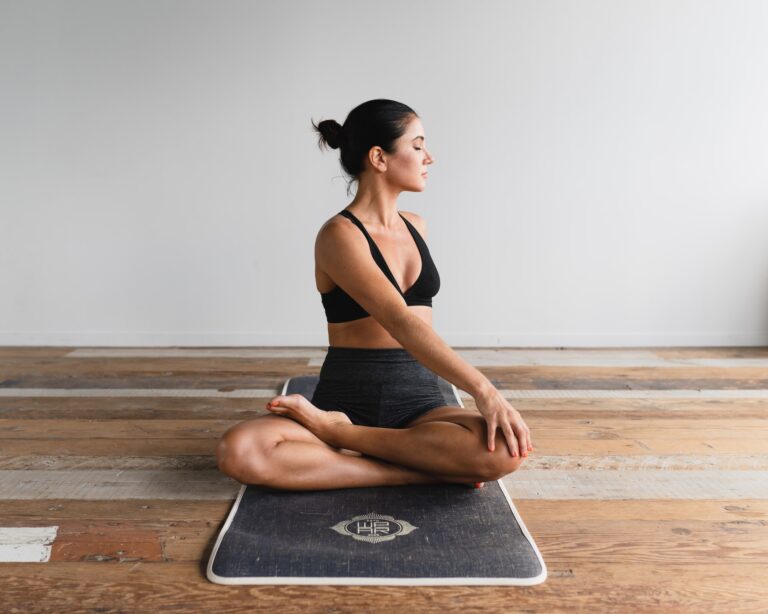The Power Of Hobbies Hobby That Boosts Your Mental Health
As an Amazon Associate, I earn from qualifying purchases.
Disclosure: Some of the links in this article may be affiliate links, which can provide compensation to me at no cost to you if you decide to purchase a paid plan. You can read our affiliate disclosure in our privacy policy.
Unlocking the Benefits of Hobbies for Your Mental Health
Hobby That Boosts Your Mental Health
activities that you do out of enjoyment or interest. They can be things like drawing, writing, playing an instrument, gardening, etc. They help improve mental health by giving the mind new information and mental stimulation, allowing you to enjoy the activity, and helping you feel accomplished. Additionally, hobbies can be a great way to socialize with friends or meet new people.
If you’re feeling down, try taking up a hobby as an outlet for your emotions. It will help to provide structure and goals, which can also give you a sense of accomplishment.
Stress Relief
Engaging in hobbies can help reduce stress levels and promote relaxation. When you’re focused on a hobby, it allows you to take a break from the stresses of everyday life and focus on something that brings you joy.
Improved Mood
Participating in hobbies can also improve your mood and overall well-being. When you’re doing something you enjoy, it releases endorphins in the brain, which can help boost your mood and reduce feelings of anxiety and depression.
Increased Creativity
Hobbies that involve creativity, such as painting, writing, or music, can help increase creativity and boost problem-solving skills. This can be beneficial not only in your hobby, but in other areas of your life as well.
Sense of Accomplishment
When you engage in a hobby, you’re working towards a goal or creating something. This can give you a sense of accomplishment and boost your self-esteem.
Socialization
Many hobbies can also help you connect with others who share similar interests. This can help reduce feelings of loneliness and provide a sense of community.
Improved Cognitive Function
Participating in hobbies that involve learning or problem-solving can also help improve cognitive function and memory.
Reduced Risk of Burnout
When you engage in a hobby, it allows you to take a break from work or other responsibilities. This can help reduce the risk of burnout and improve overall productivity.
Having a hobby can also help you feel less stress because it helps distract your mind from stressors. When your mind is focused on a hobby, it can’t be focused on stressors like work or school. Hobbies can also help with mental health because they allow you to connect with people in your hobby community who share similar interests and goals.

What is the Connection between Hobbies and Mental Health?
Hobbies are a great way to enjoy yourself and take time for yourself. They are also great way to increase your sense of wellbeing and can be a great way to reduce stress levels. Research has shown that hobbies can improve mental health by engaging the brain in creative and stimulating activities. The benefits of hobbies include improving cognitive function, building social connections, and strengthening the immune system. Hobbies also provide a positive outlet for individuals who may feel overwhelmed or have low moods. In addition, participating in hobbies can decrease the risk of developing depression by up to 30% due to the enjoyment they provide.
As with any activity, hobbies should be incorporated into your daily routine and be enjoyable and fulfilling. By incorporating hobbies into your life, you can help improve your mental health and overall wellbeing.
Types of Hobbies that Can Improve Your Mental Health
Hobby That Boosts Your Mental Health
– Participating in leisure activities has been linked to decreases in depression and anxiety. Some examples of leisure activities that have been linked to mental health benefits include creative pursuits, sports-related activities, and academic activities.
– Hobbies can help reduce stress, improve mood, and provide a sense of accomplishment. These benefits can be obtained through hobbies such as gardening, cooking, crafting, or volunteering.
– Spending time outdoors, such as in nature, has also been linked to improved mood and overall wellbeing. This can be achieved through hobbies such as hiking or gardening. Additionally, team activities such as sports can provide important social connections and support.
– A balanced hobby portfolio ensures that participants are able to find hobbies that suit their interests and goals. This should include engaging in leisure activities from multiple types of hobbies to ensure a positive mental health experience.
Ways to Make Time for Your Hobbies
Does your free time feel empty? Do you wish you had more hobbies to fill it with?
Research has shown that spending time on a hobby can reduce stress and improve mental health. Consider trying a new activity or exploring different hobbies that spark your interest. As with any activity, exercising isn’t the only way to get benefits from it. Also consider taking classes or volunteering, spending time outdoors, and playing games. If you can’t find time for a hobby, start with one of these activities for even a few minutes each day and make it a habit. It may take some time, but it will be worth it in the end.
Also, if you’re struggling to find time for your hobbies, start by making time for one activity at a time. Once you build up momentum, it will become easier to include other activities in your schedule. Finally, if you’re finding it hard to fit your hobbies into your schedule, try setting aside specific times for them each day. This will make them a part of your routine and easier to fit in.
The Role of Participation in Recovery
Mental health benefits from engaging in activities that are enjoyable and meaningful to the individual. Furthermore, participating in self-care strategies, such as journaling, can help individuals cope with mental health issues such as depression, anxiety, and stress.
One of the best ways to engage in hobbies is to journal. This activity helps individuals reflect on their experiences and feelings, which can help them manage symptoms of depression and anxiety. Engaging in hobbies can also help individuals reach a state known as “flow” which can lead to emotional regulation, creativity boost, and happy moods.
Another option for mental health benefits is online therapy. Online therapy allows individuals to access mental health care from anywhere and at any time. This makes it easier for them to receive treatment without having to travel or leave their homes. The benefits of mental health benefits can be achieved through different methods.
Rediscovering Interests and Strengths Through Hobbies
If you’re feeling down and out of sorts, try putting your focus on something positive. It might be a hobby or activity you’ve been interested in for a while.
Consider reviving old interests and passions by trying new activities that spark your interests and talents, like reading, writing, crafting, playing games, or cooking. Not only will these hobbies reinvigorate you and provide enjoyment, but they may also help you find new career paths or opportunities. As you explore new hobbies, focus on positive thoughts and use your spiritual life for support. Also, set realistic goals to manage anxiety and make progress in your hobbies. By embracing hobbies as part of your mental health plan, you can rediscover who you truly are and recognize your strengths.
Uncovering the Power of Hobbies for Mental Well-being
If you’re looking for a way to improve your mental health, hobbies could be the answer. Hobbies can provide a sense of purpose and fulfillment, plus they help reduce stress and anxiety levels which can lead to improved mental health. Regularly engaging in hobbies can also improve self-confidence, resilience, and creativity, all of which are important factors for mental well-being.
Another benefit of hobbies is that they provide an escape from everyday life. By taking part in activities such as gardening, painting, or playing music, you can free yourself from the stresses of everyday life and focus on something enjoyable and positive. Plus, hobbies are great ways to bring joy into your life and can help make it a happier place to be. So why not give hobby participation a try?
Start Your Mental Health Journey Today
Start your mental health journey today with the help of a qualified mental health professional and/or therapist. A mental health professional can provide guidance on how to manage life changes or mental health conditions such as anxiety, stress, depression, sleep, dementia, and more.
A mental health assessment can help identify factors that may be contributing to your overall well-being. This includes factors like physical health, relationships, work, and home environment. A mental health assessment also helps you better understand your thoughts and feelings so that you can make informed decisions about your health.
A qualified mental health professional or therapist can also provide insight into various treatment options and available resources. These professionals are trained to help individuals address their unique needs and goals through counseling and other forms of therapy.
In addition to medication, there are many other effective approaches to treating mental illness such as yoga, meditation, exercise, group activities, humor therapy, art therapy, music therapy, gardening, journaling, socialization, and even daily activity. They all have benefits for overall well-being and can play an important role in any person’s recovery journey.
10 different types of hobbies that can help you reduce stress
Stress is a constant state of mental and physical tension that can have a negative impact on health and well-being. Research has shown that engaging in different types of hobbies can help reduce symptoms of stress and lead to an improved sense of wellbeing. One of the most popular benefits of hobbies is a sense of accomplishment and accomplishment. When you participate in a hobby you are actively engaged in something that interests you, which helps you feel happier and more satisfied with your life.
- Yoga and Meditation: These ancient practices have been proven to reduce stress and anxiety, and improve overall well-being. Yoga and meditation can be done at home or in a studio, making it a convenient hobby to practice.
- Gardening: Spending time outdoors and getting your hands dirty can be a great way to relieve stress. Gardening allows you to connect with nature and take a break from the digital world.
- Painting and Drawing: Engaging in creative activities like painting and drawing can be a therapeutic way to reduce stress. You don’t have to be a professional artist to enjoy these hobbies, as they can be done at any skill level.
- Reading: Losing yourself in a good book is a great way to escape from the stresses of everyday life. Reading can also help improve focus and concentration.
- Cooking and Baking: Experimenting in the kitchen can be a fun and rewarding way to reduce stress. Trying out new recipes or baking your favorite treats can be a relaxing way to unwind.
- Writing: Whether it’s journaling, creative writing, or blogging, writing can be a cathartic way to express yourself and reduce stress. Putting your thoughts and feelings down on paper can be a powerful tool for self-reflection and personal growth.
- Photography: Capturing the beauty of the world around you can be a great way to reduce stress. Photography allows you to focus on the present moment and appreciate the little things in life.
- Playing Music: Whether it’s singing, playing an instrument, or dancing, music can be a powerful way to reduce stress. Engaging in musical activities can help improve mood and boost overall well-being.
- Hiking: Spending time in nature and getting some exercise can be a great way to reduce stress. Hiking allows you to disconnect from the digital world and connect with the natural world.
- Traveling: Exploring new places and experiencing new cultures can be a transformative way to reduce stress. Traveling allows you to step out of your comfort zone and gain new perspectives on life.
Another reason why hobbies are beneficial for mental health is because they boost mood and reduce symptoms of depression, anxiety, and stress. One example of this is team sports. Participating in sports activities such as football or basketball can help improve mood and decrease symptoms of depression, anxiety, and stress. Additionally, hobbies such as hiking or walking provide physical benefits such as exercise, breathing exercises, and sunshine exposure. Creative activities such as art also provide mental benefits such as building positive views of oneself, improving self-esteem, and feeling more connected to others.
Frequently Asked Questions
What hobby is good for mental health?
If you’re looking for a hobby to improve your mental health, there is a variety of activities to choose from. Playing an instrument, singing, or listening to music can help boost mental health and balance any mood. Engaging in activities that we find pleasurable can also help our mental health flourish and improve.
Brain-boosting activities such as drawing, photography, calligraphy, and theater can reduce stress and enhance confidence levels. Quilting, woodworking, homebrewing, and taking classes at local community colleges, libraries, or community centers can all be hobbies that will help to improve mental health. Lastly, Mental Health First Aid (MHFA) courses can provide strategies to help those in both crisis and non-crisis situations. By finding a hobby that you enjoy, you can help to maintain strong mental health and wellbeing.
What activities promotes mental health?
Having healthy mental health is just as important as physical health and there are a few activities that can help promote mental health. First and foremost, engaging in hobbies and activities of your choice can give you something enjoyable to do while stimulating the reward center of the brain. Additionally, taking time to form healthy habits such as exercising regularly or eating nutritious meals can also help improve mental health. Other activities such as reading, writing, playing board games and even gardening can be an enjoyable activity to take part in.
Self-care strategies like mindful meditation or yoga can also help in taking charge of your life and benefit mental health. Finally, reaching out for help from friends, loved ones, or healthcare professionals can also be beneficial and provide you with the support needed during tough times.
What hobbies are good for depression?
If you’re looking for hobbies that can help with depression, there are many to choose from. Practicing hobbies has been linked to a 30% reduction in the risk of experiencing depression. Hobbies can also help reduce symptoms of depression, lower stress levels, aid in relaxation, and even improve neuroplasticity.
One great hobby for people with depression is playing music. Music has the power to process uncomfortable emotions and create a mood balance. Playing an instrument or singing can be calming and enjoyable while helping to lower cortisol levels, blood pressure, and body mass index.
Other hobbies that might be good for depression include gardening, art projects, reading, journaling, taking pictures, hiking, and anything that allows you to express yourself freely and relax. Even if it doesn’t feel like it at first, hobbies can be an important part of managing mental health.
What hobbies grow your mindset?
Dedicating yourself to hobbies which grow your mindset has many benefits for mental health. According to research, investing time and energy in an engaging activity can improve concentration and creativity, increase optimism, reduce stress levels, and boost physical health. Cognitive Behavioral Therapy also recommends starting with small activities like 15 minutes of reading per day to build up to more sustainable change.
In addition to this, reviving old passions and trying one new activity a week is great way to uncover hobbies and interests that can help you grow your mindset. Creative activities such as painting, playing music or writing can help improve concentration and allow for a form of self-expression. Physical activities such as sports, gardening or nature communing are great ways to reduce stress levels while helping with relaxation. All of these hobbies can also help build relationships with others and create positive social connections.
Which hobbies are the best for boosting mental health?
Engaging in hobbies can be incredibly beneficial for mental health and wellbeing. Hobbies such as tai chi, yoga, qi gong, or rock climbing involve both physical and mental stimulation and can release calming chemicals that make us feel happier and more relaxed. These hobbies can also lower blood pressure, reduce stress hormones, and reduce the risk of depression by up to 30%. Furthermore, hobbies can improve mental health by increasing neuroplasticity – or the brain’s ability to adapt and learn new skills.
Hands-on hobbies such as pottery or gardening are also great for mental health as these hobbies demand focus, concentration, and relaxation that can help to reduce stress levels. Similarly, hobbies that involve art or music such as drawing, painting, playing an instrument or singing can also benefit mental health and wellbeing by triggering the brain’s reward system and making us feel more positive about life.
What “counts” as a hobby?
A hobby is any activity done regularly during leisure time for pleasure. This could mean anything from spending time alone painting or reading, visiting with friends and family to communing with nature, playing sports, or going on vacation. No matter what the activity is, if it’s something you enjoy doing then it “counts” as a hobby.
Hobbies can be a great way to improve mental health too; research suggests that hobbies help to reduce stress and feelings of loneliness and isolation. It also provides joy, meaning and purpose outside of work hours.
A hobby is distinguished from other activities by its level of engagement; if you find yourself looking at your phone instead of concentrating on the activity it is not a hobby. So make sure to choose something that truly captures your interests and attention.
Tips for Improving Your Well-Being and Reducing Health Risks
When it comes to physical activity, it’s important to find something that you enjoy and that fits into your schedule. Whether it’s biking, knitting, or trying a new team sport, the key is to stay consistent and make it a habit. Regular physical activity can lower your heart rate and reduce your risk of certain health problems.
Visual art is a great way to unwind and express your creativity. From painting to photography, there are many ways to explore this hobby. Not only is it a fun way to pass the time in your spare time, but it can also help you decrease your heart rate and feel more relaxed.
If you’re looking for simple ways to improve your wellness, there are plenty of options. From taking quiet time to engage in pleasurable activities, to getting outside and trying outdoor hobbies, there are many things you can do to boost your mood and improve your overall health. And don’t forget to pay attention to important opportunities that come your way – you never know where they may lead!
In terms of risk factors, it’s important to be aware of any life-changing events that may impact your health. This is especially true as you age, as Alzheimer’s disease becomes more prevalent in older adults. However, studies have shown that staying positive and engaging in everyday tasks can help improve cognitive function and lower the risk of developing this disease.
No matter what your interests or passions may be, there are ways to incorporate them into your daily routine and improve your overall well-being. So take some extra time for yourself today and start exploring new hobbies and activities that will make you feel good both inside and out.
Conclusion
It’s time you start exploring hobbies as a way to improve your mental health and overall well-being. Having hobbies can help you in many ways, including improving your physical health, boosting self-esteem, and reducing stress. We hope our blog has helped you identify the benefits of hobbies and find a new hobby that helps you cope with stress. If you’re struggling with mental health issues, here’s how to initiate therapy.







